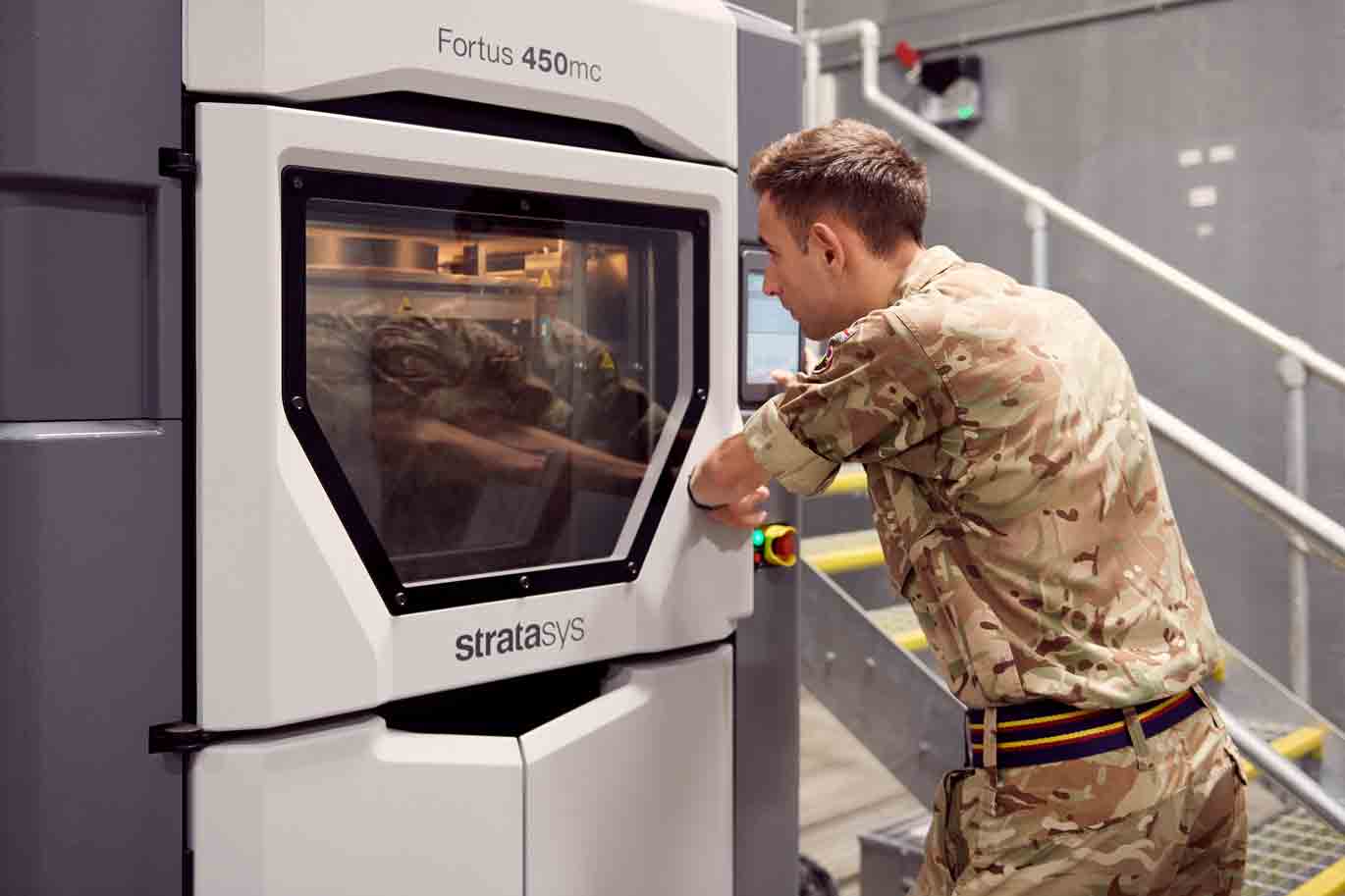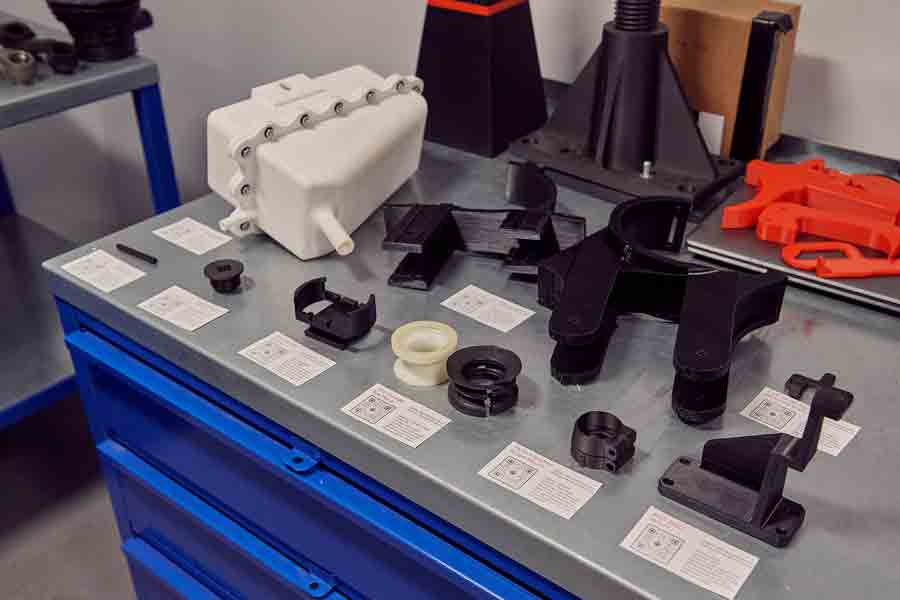Does 3D printing hold the answers to platform availability and part obsolescence?
UK Armed Forces turn to 3D printing to resolve issues impacting platform availability.
Anita Hawser
21 September 2022

Could 3D printing of spare parts and equipment f help increase platform availabilit fyor the UK ‘s Armed Forces? Defence Equipment and Support’s Future Capability Group (FCG) certainly think so and have set up of a Centre of Expertise in HIgh Value Manufacturing (HVM), which is expected to play an important role in facilitating the progression of materiel such as advanced composites and processes such as additive manufacturing, to improve current and future availability for frontline commands.
The CoE which was launched at the Advanced Manufacturing Research Centre in Rotherham this summer, builds on the success of other CoEs created by FCG such as Expeditionary Robotics and Digital Battlespace.
Col. Dan Anders-Brown, Senior Responsible Owner for the HVM CoE at DE&S, said one of the new CoE's early priorities is to respond to the “Additive Manufacturing (AdM) as a Service Challenge” set by Lieutenant General Richard Wardlaw, Chief Defence Logistics and Support (CDLS) in Strategic Command. The challenge has been created to accelerate the use of AdM – more commonly known as 3D printing – within defence to improve platform availability. Charlotte Robinson, Strat Com’s Support Transformation Innovation Team Leader, said the CDLS Additive Manufacturing as a Service Challenge seeks to collaborate with industry to understand and alleviate the blockers that are currently hindering the wider adoption of additive manufacturing within the UK Defence supply chain.
“We see additive manufacturing as a key tool in our arsenal to help reduce issues affecting our platform availability, such as excessive inventory lead times, part obsolescence and prohibitively low production volumes,” she explained.
FCG is in the process of setting up an initial trial for a multi-supplier framework agreement to accelerate the use of such technologies within UK Defence, to help deliver a more agile response to the demand for parts and generate the efficiencies it promises. The trial will also help the MoD and industry develop an understanding of the constraints of 3D printing, and the solutions to these constraints.
Suppliers who join the framework will be eligible to bid for tasks set by FCG, the first of which has a budget of up to £1 million split between successful bidders.
